From Styria to Hollywood
Top Photo: Ron Murray
A Conversation with Barbara Gasser, Member of the HFPA
Before moving to the U.S., you worked for the Austrian Federal Ministry for Foreign Affairs. What was your motivation behind leaving Austria and your former career to pursue a new life in Hollywood?
During the eight years as an employee of the Federal Ministry for Foreign Affairs, I worked for approximately three years at the Press and Information Department. To deepen my interest and know-how, I studied communications and political science at the University of Vienna and got my first taste of the world of journalism. In the late 1990s, I was diagnosed with breast cancer for the second time. Facing the risk of death once more was ultimately the turning point in my life. Even though going to the United States looked like a free fall, I felt that it was time to risk all or nothing if I wanted to fulfill my dreams. A wonderful thing is that I am still connected to the Federal Ministry for Foreign Affairs through my friends.
When did you first realize that movies and journalism are your true passions?
I grew up without TV, and routine cinema visits were not affordable on my parents budget. In the early 1970’s, however, the city of Graz offered children from the age of 10 to 14 a yearly subscription to Sunday matinees at the Grazer Opernkino, which unfortunately no longer exists. My parents allowed my siblings and myself to attend those screenings. Thus, the seeds of my movie passion were sown, and mainly for two reasons: As with theater, the cinema transported me into different worlds, those of make believe, dreams, provoked imagination, or simply causing joy and tears. But what really intrigued me were the occasional discussions with a moderator after each screening. I was longing for these Sunday mornings because of these conversations and to this day, I consider a perfect movie experience one that offers and stimulates discussion afterwards.
You have worked with the former governor and fellow Austrian Arnold Schwarzenegger. How did that come to be? How was the time you spent working with him?
Shortly after my arrival in Los Angeles, I met Arnold Schwarzenegger for the first time at one of the legendary Cigar nights at Schatzi on Main. A few months later, I interviewed Mr. Schwarzenegger for the first time for the movie Terminator 3. The same summer, he announced his candidacy for Governor on the Jay Leno show and I was the only Austrian journalist present. From there on, I followed his campaign on a daily basis. I saw it as a once in a lifetime opportunity even though dealing with his security detail was extremely time consuming and sometimes frustrating as the press corps was only granted restricted access. Being from Styria myself, the “Styrian Oak” made me work twice as hard as everyone else and thus held me to prove From Styria to Hollywood A Conversation with Barbara Gasser, member of the HFPA AI 45 the saying “Steirerblut ist kein Himbeersaft” (“Styrian blood is no raspberry juice”). Eventually, Mr. Schwarzenegger made it a habit to have me ask the last question at press conferences. A year later, Governor Schwarzenegger granted me his first interview for Austria. Through his seven years as the 38th Governor of the State of California, I continued to cover politics and interviewed Arnold Schwarzenegger on many occasions. We are still in close contact today.
How difficult was it for you to build your contact network and to gain a foothold in Hollywood?
I have to admit it was much tougher than I had ever imagined. The only people familiar with the film business that I knew were my late sister, make-up artist Isabella Wiley, and my late fiancé Bruce Murphy, an architectural engineer and former Disney Imagineer. Gaining access and building a network was a step-by-step process. But it was also luck, meaning to be at the right time at the right place and meeting the right people - combined with the willingness to work 15 hours a day, seven days a week. No holiday, no sick days. And it continues that way.
Photo: HFPA
As a member of the Hollywood Foreign Press Association, what does your schedule look like during the days leading up to the Golden Globes?
The months from September leading up to the Golden Globe Awards in the beginning of January are the busiest months of the year. We call this period the Award Season. The schedule is packed with interviews and meetings in Los Angeles and around the world, traveling to set visits, attending screenings, reading of scripts and listening to soundtracks. It is an intensive time because each year is different and has its own particular challenges.
Can you share a little bit about what the voting process for the Golden Globes looks like?
Unfortunately, I am not able to share in detail because the voting process is secret. But as I mentioned above, one has to watch as many American and international movies and TV-series as possible among the entries. The first step is the voting for the Golden Globe Nominations. These are announced in early December. Almost immediately after the announcement, the process of watching, reading and listening starts all over again. Now, one might think it is must be so much easier to concentrate and vote from a handful of nominees. But in fact, it is the contrary. To single out one film or one performance, etc. as the winner of the Golden Globe Award is the most difficult decision.
Is it correct that you are inviting a guest from Austria to the Golden Globe Awards every year?
Inviting Conchita Wurst as my guest to the 72nd Golden Globe Awards was unique because I admire her courage, outspokenness and vision. When I learned that the bearded lady from Styria had never been to Hollywood, I invited her to the Golden Globe Awards. The Golden Globes is the second most important Award show in Hollywood with approximately 100 million viewers around the world. Its Red Carpet is the most glamorous introduction to Hollywood and Conchita Wurst became an overnight sensation. Currently, I am working on a project that is very close to my heart but it is still in its infancy which is why I cannot reveal any details at this point.
What is your take on the Austrian film industry? What, if anything, makes Austrian productions unique and different?
For this Award season, I am looking forward to two Austrian productions. One is Hubert Sauper’s much acclaimed documentary We come as friends and the other one is the surprise horror drama Goodnight Mommy. What also comes to mind is the growing number of films being shot in Austria: The successes of Mission Impossible: Rogue Nation and James Bond: Spectre have sparked new interest. Oscar winner Dame Helen Mirren revealed to me that after filming Woman in Gold in Vienna, she has become such a huge fan of the city and she humorously sees herself as a promising Ambassador.
Given the recent successes of Christoph Waltz, Michael Haneke, and others, would you say that the Austrian film has won the respect of Hollywood? How do you see its future?
Austria and Austrians have been enjoying a long relationship with Hollywood at many different levels, starting as early as the silent film era. More recently, Arnold Schwarzenegger has been a household name since the 70’s and Klaus Maria Brandauer, who won the Golden Globe as “best supporting actor” in Out of Africa, was a prominent figure in the 80’s. In 1987, director Wolfgang Glück received Austria’s first Oscar nomination in the category “best foreign language film.” However, it took twenty years until Stefan Ruzowitzky won Austria’s first Oscar in the category “best foreign language film” in 2008. Presently, Austria continues to be deeply rooted in Hollywood. Swarovski has been designing the stage for the Oscars for several years and last but not least chef Wolfgang Puck has been creating the Oscar menu for almost two decades. Other successful Austrians in Hollywood are cinematographer Otto Nemenz, writer Peter Morgan, or composer-producer Peter Wolf.
Barbara Gasser with Christoph Waltz.
Photo: HFPA
Are you going back to Austria often? Is there anything you miss especially about your home country?
I try to go to Austria once a year. Many times my visit is a combination of professional meetings and seeing family and friends. Usually, the time is way too short and I miss the Gemütlichkeit. I also miss the four seasons - in particular winter, when the first snow is falling. When it comes to the Austrian delicacies, my list seems to get longer after each visit: Schwarzbrot, Verhackertes, Käferbohnen, Schweinsbraten, Strudel, Vis, Liptauer, Hagebutten jam, Kremser Senf, Kernöl, or blood orange tea.
You have already achieved so much. Is there anything that you still dream about or wish for?
I have started to give motivational speeches and lectures in schools and universities. I would like to continue that path and pass on my know-how and expertise to the next generation. Also, I would like to invest more time connecting Hollywood with Austria.
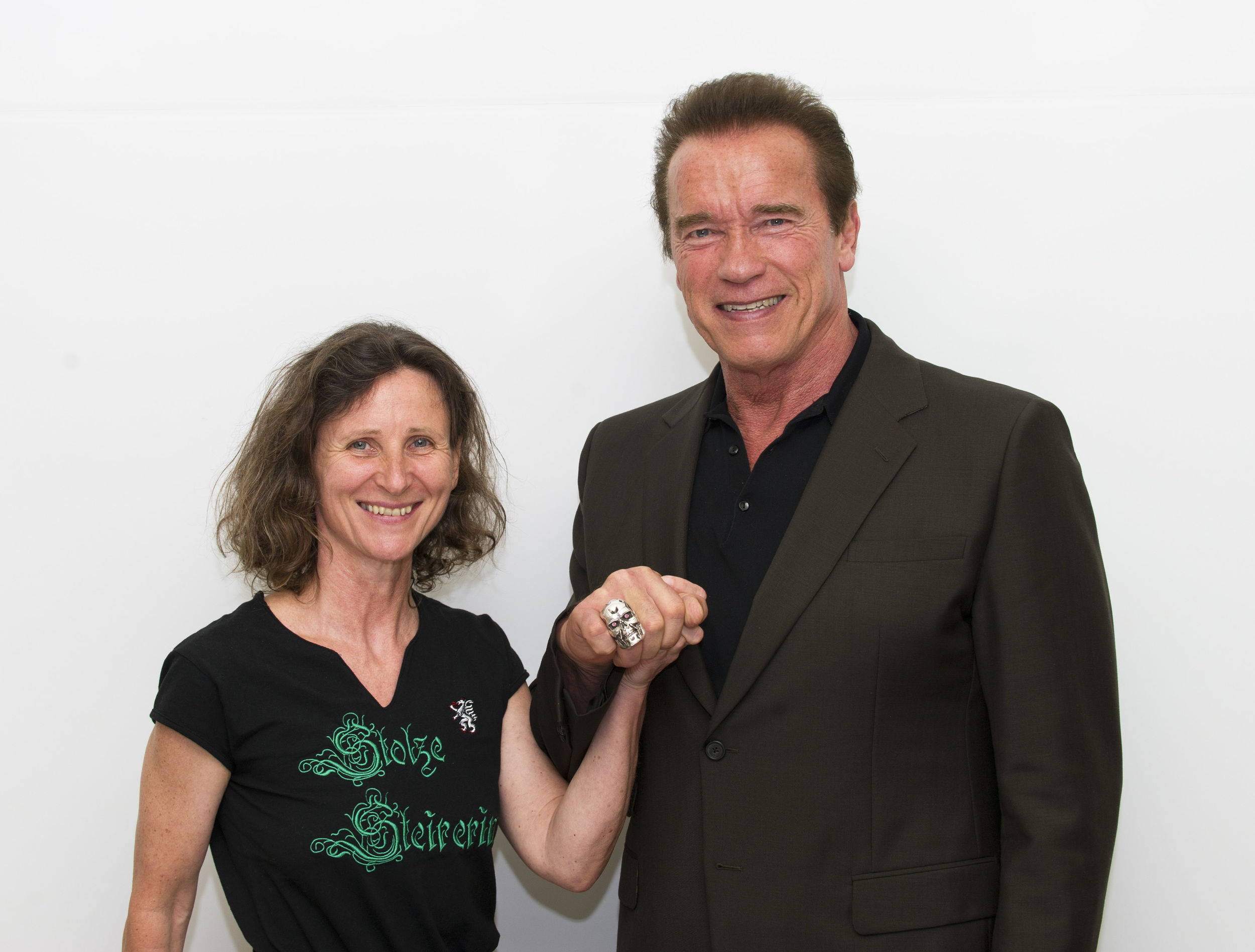

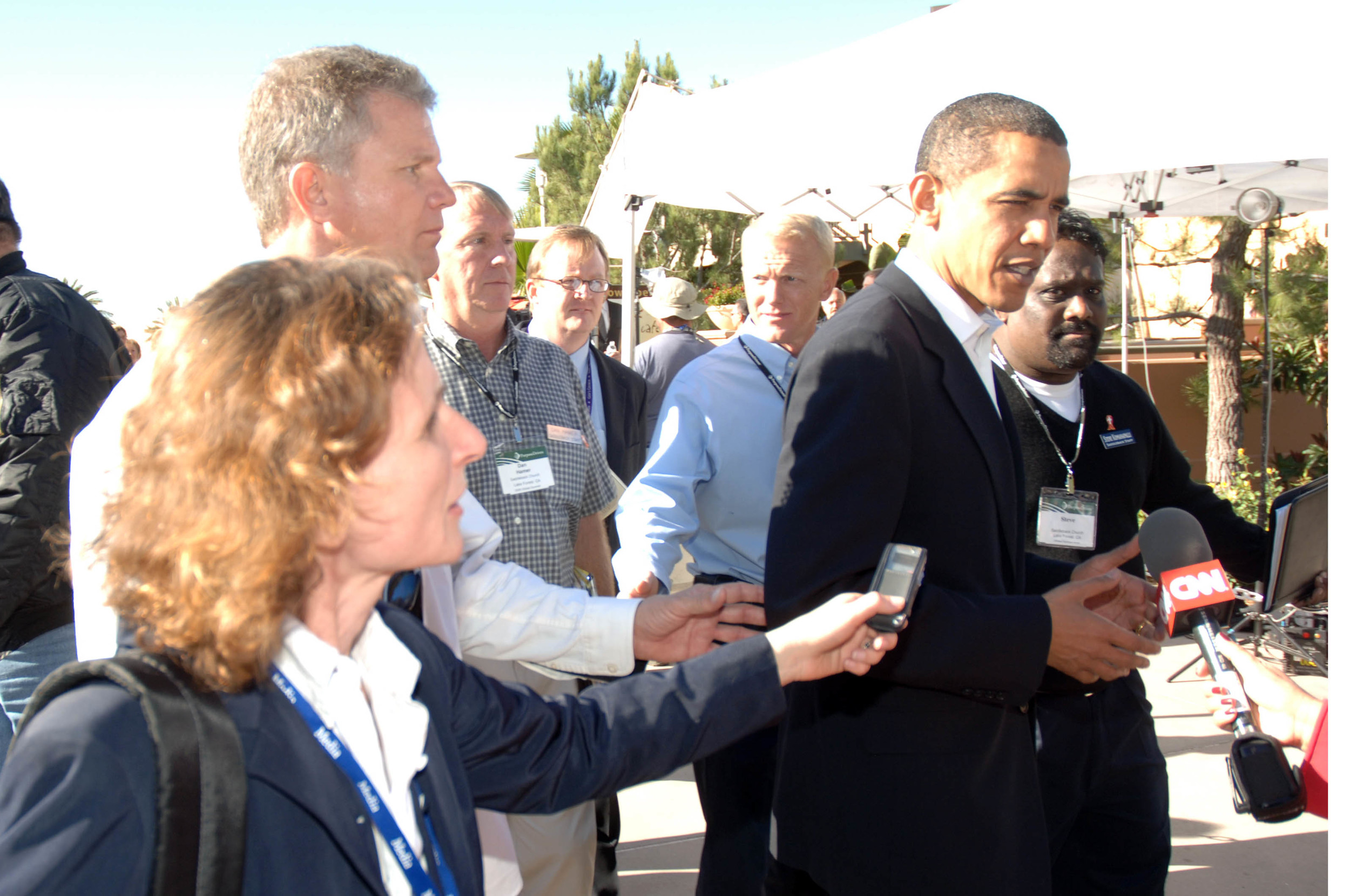
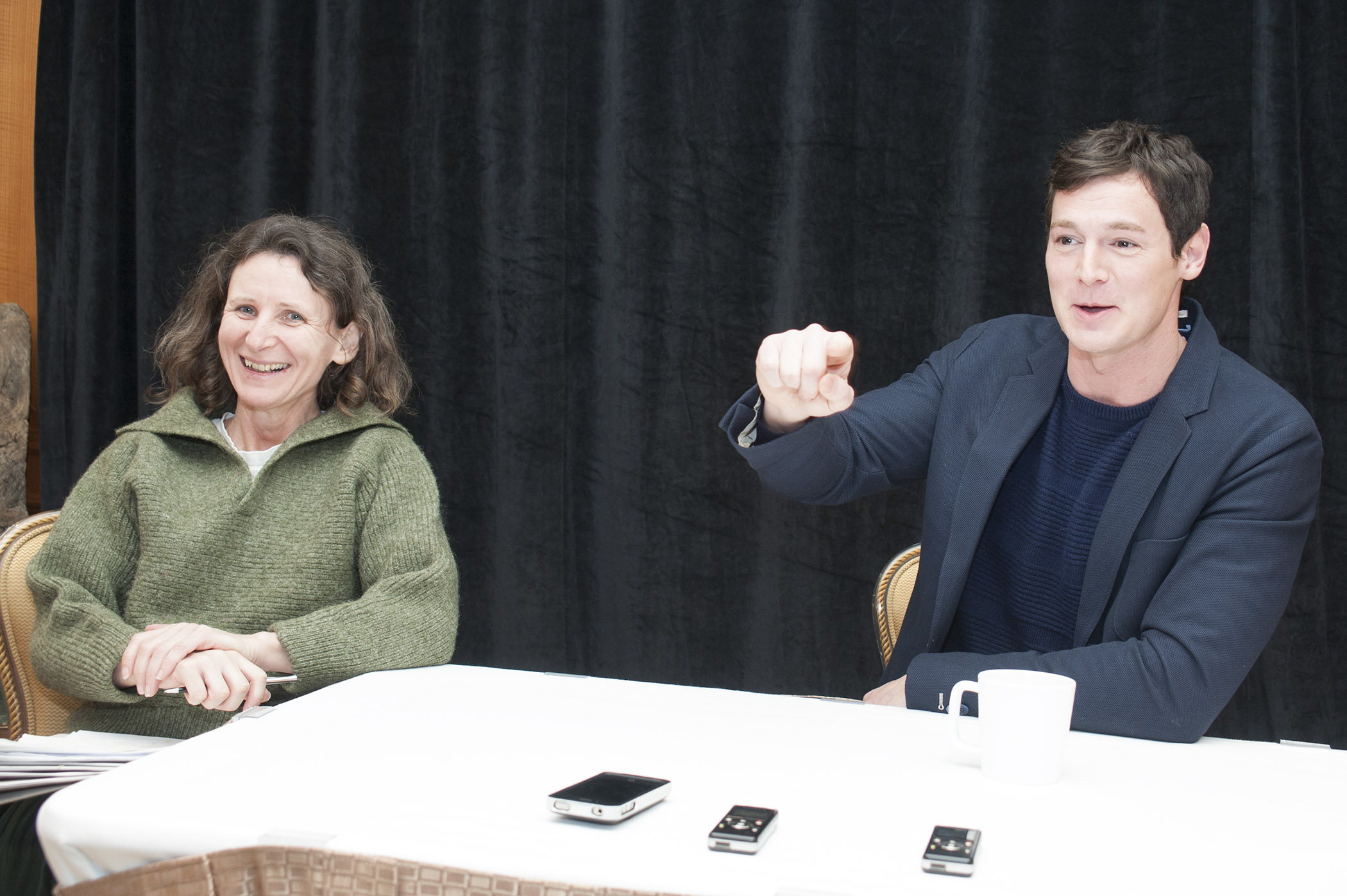
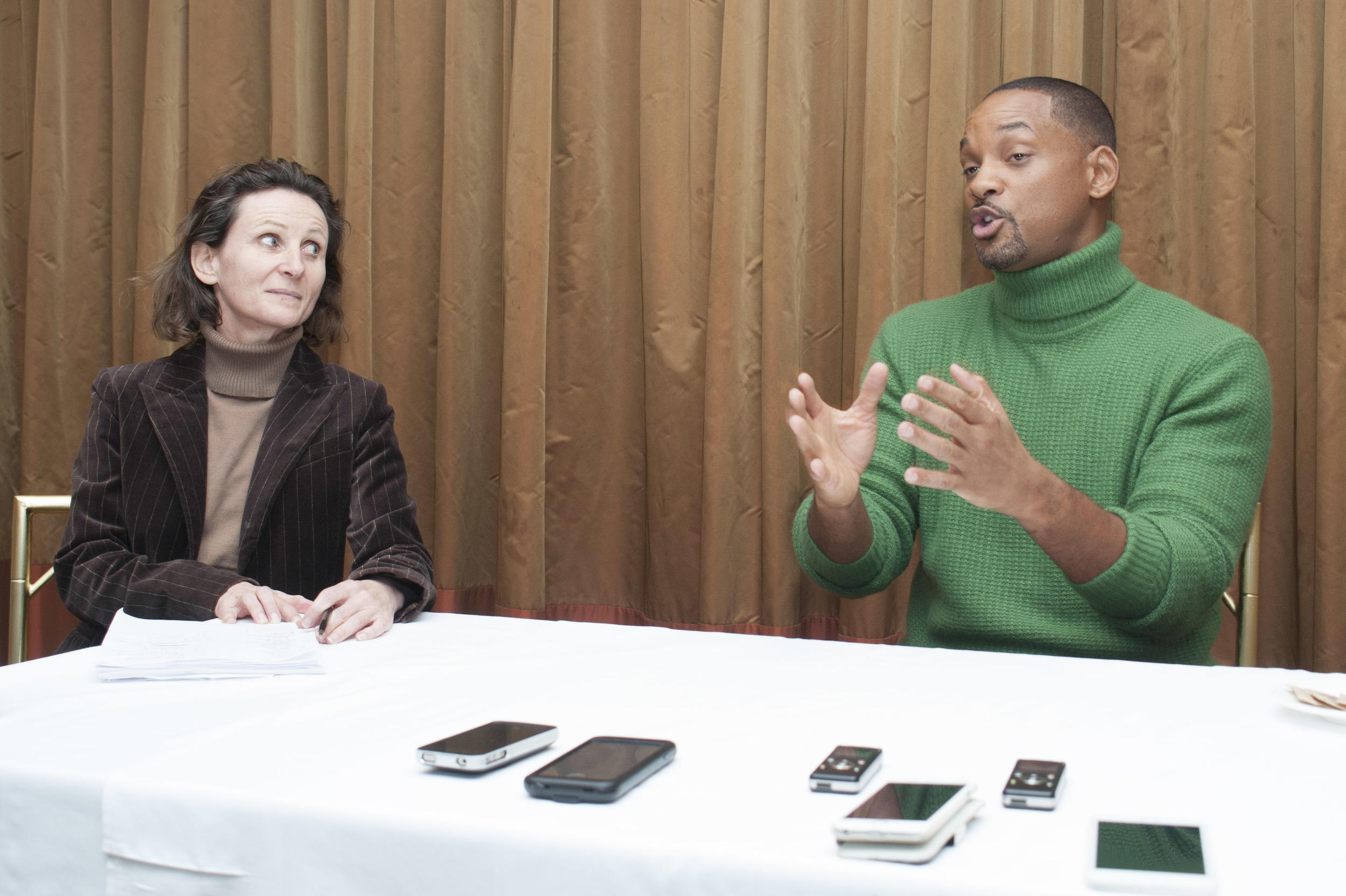
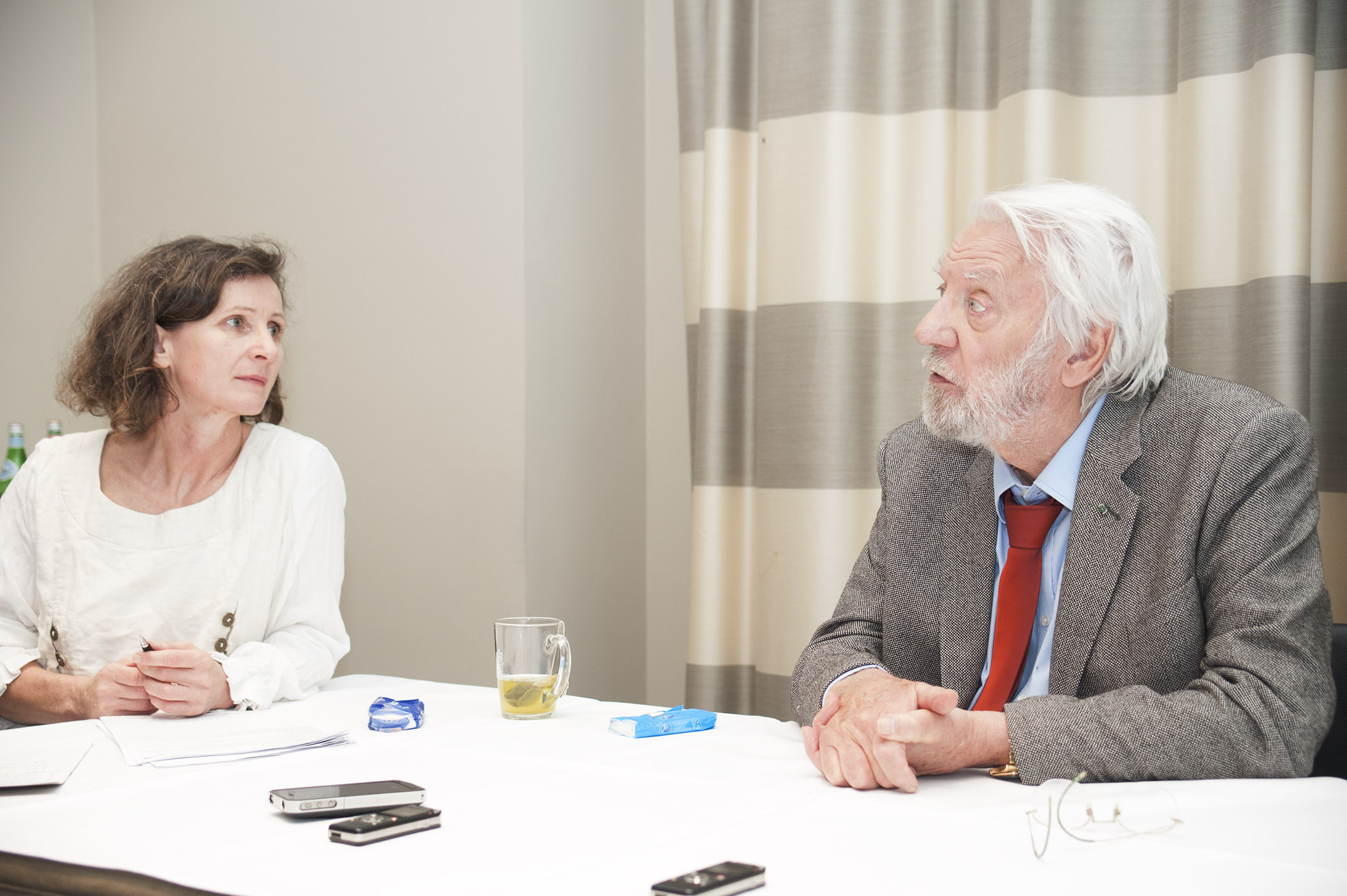
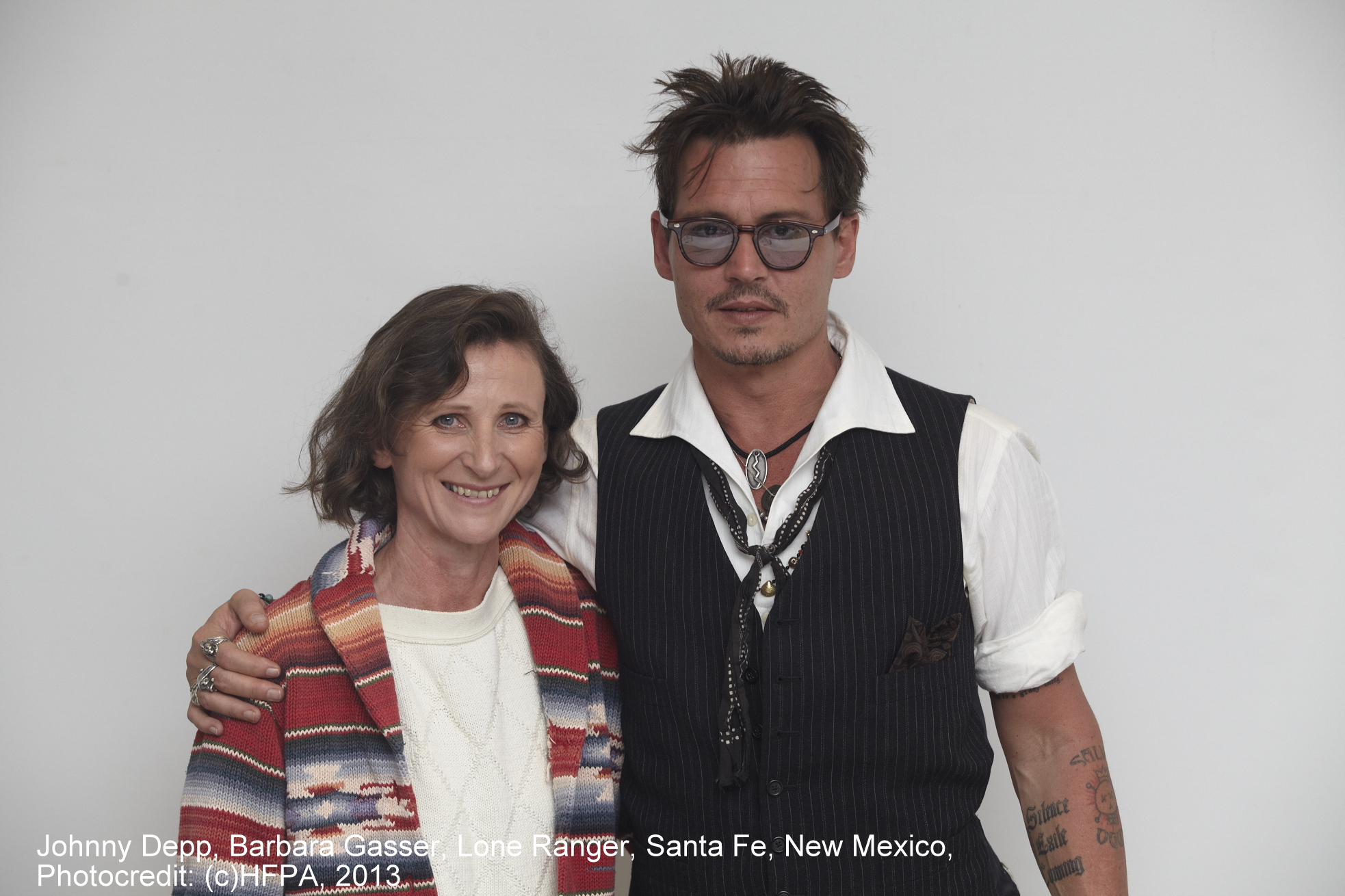


Barbara Gasser is a multiple Award winning Journalist and an Austrian member of the HFPA. She holds a Masters Degree in Communication and Politial Science from the University of Vienna, Austria. Prior to her career as journalist, Ms. Gasser served eight years in the Austrian Federal Ministry for Foreign Affairs.

